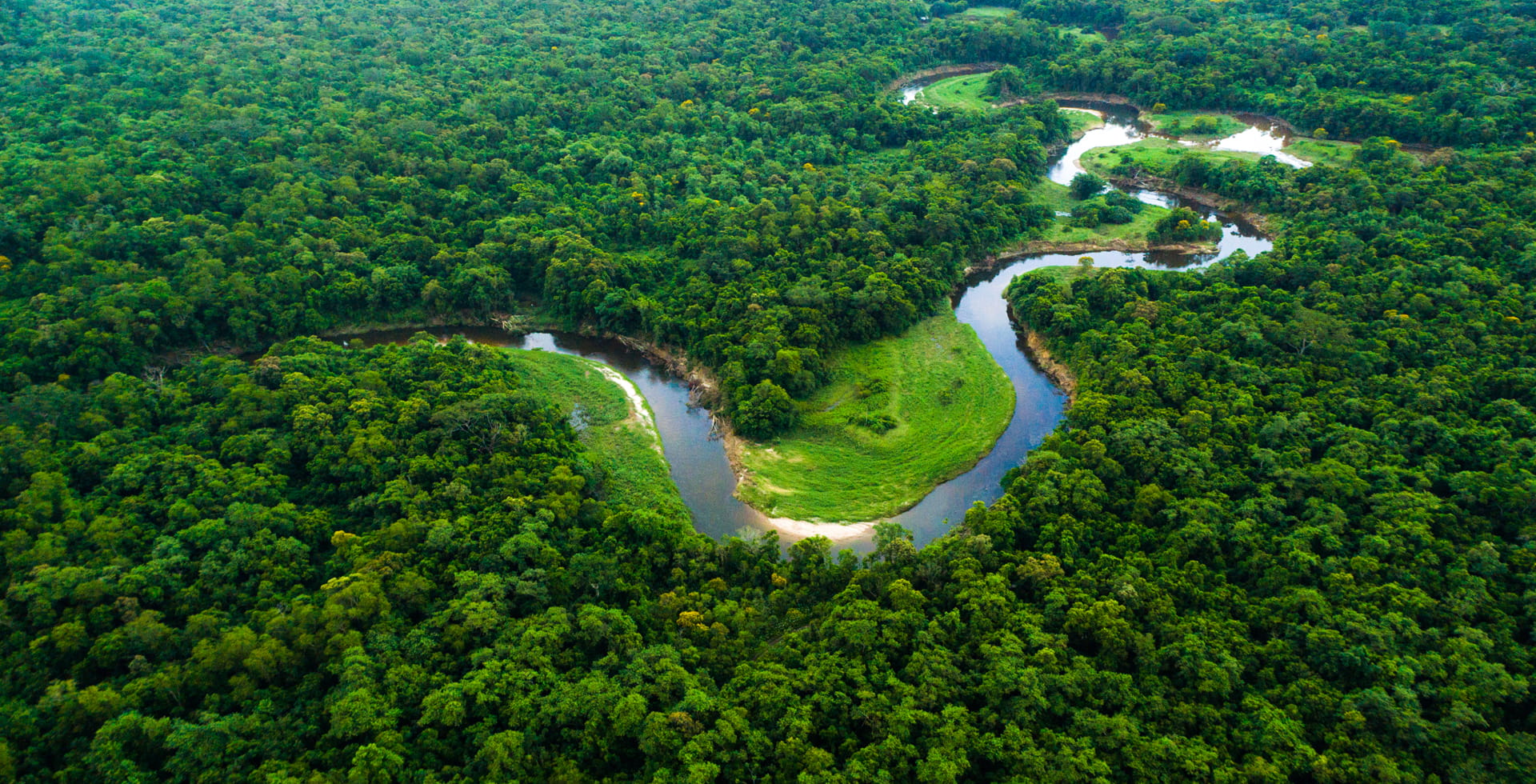Active is: Thinking sustainably
Beyond climate: it's time for investors to protect biodiversity

Summary
Part one of the latest UN Biodiversity Conference ended with optimism that biodiversity can be put on a path to recovery by 2030. It has never been more important for investors to play a role in protecting and promoting the world’s natural capital.
Key takeaways:
- Biodiversity is falling fast due mainly to human activity, with little action being taken to tackle the crisis
- There are reasons for optimism regarding biodiversity, as it’s not too late to tackle the crisis and there is every chance of political consensus for action
- Investors can play an important part by integrating biodiversity factors into their investment processes and backing innovators
While the 2021 United Nations Climate Change Conference, known as COP26,1 needs no introduction, its “biodiversity” equivalent is less known. Yet the UN Biodiversity Conference that began in October 2021 (CBD COP-15)2 is equally important and set new goals for the natural world. At last, the biodiversity crisis is moving out of the shadow of climate change with which it is interlinked. It’s not a moment too soon, as the pressure on our ecosystems is increasing exponentially.
Can we imagine our Earth without biodiversity? Indeed, what will happen if we continue to underestimate all that nature provides us with?
We believe that climate change and biodiversity loss should be tackled together, and that sustainable finance can help to tackle both. They both classify as “planetary boundaries” – the nine boundaries that humanity must respect and protect to maintain life on Earth. This article addresses the importance of integrating biodiversity into investment strategies by defining the concept, the extent of biodiversity loss, the associated challenges and the role that investors can play.
What is biodiversity?
An extensive variety of plant and animal life in the world is considered vital for life as we know it – a concept that’s known as biodiversity.3 More specifically, this refers to the variety of life on Earth at three interdependent levels: diversity within species (genetic diversity), between species (species diversity) and between ecosystems (ecosystem diversity).

Why is biodiversity in crisis?
At this point in time, we are in an era of unprecedented biodiversity decline. More than one million species are under threat, plastic pollution threatens about 66% of the marine environment and plant species have declined by about 50%. Human activity is mostly to blame, with the main causes being changes in land and sea use, direct exploitation of organisms through activities such as fishing, widespread pollution, the introduction of invasive alien species and climate change, according to the Intergovernmental Science-Policy Platform on Biodiversity and Ecosystem Services (IPBES).
We are exploiting Earth’s resources faster than it can replenish them. The good news, though, is that there is still time to reverse the trend for future generations.

Essential services for human society
Biodiversity is about more than just the species we consider rare or threatened: it encompasses the food we eat, the oxygen we breathe, the medicinal plants that heal us and the clean water we drink. In fact, the continuing loss of biodiversity directly threatens human health and increases the risk of future infectious diseases emerging. We owe everything to nature.
More broadly, biodiversity loss is slowing progress towards the United Nations Sustainable Development Goals (SDGs), according to the IPBES Global Assessment Report on Biodiversity and Ecosystem Services.4 Thirty-five out of 44 SDG sub-targets are impacted by biodiversity loss, including those related to poverty, hunger, health, water, cities, climate, oceans and land. Biodiversity is, therefore, not a pure ecological issue – it has significant social, security and economic implications.
The threat to drug discovery
Did you know that medicines like aspirin, morphine and penicillin come from wild plants? According to the World Health Organization, about 60% the world’s population depends on traditional medicines and 85% of that medicine originates in plants.5 Indeed, plants have been used to successfully treat human disease for many years, and have yet more potential that has not yet been exploited. So, biodiversity loss directly threatens new drug and treatment discovery.
Contributing to climate change mitigation
Indeed, the challenges of climate change and biodiversity are intertwined. “We can’t be net zero unless we are nature positive,” explains David Craig, co-chair of the Taskforce on Nature-related Financial Disclosures (TNFD), which was launched in June 2021. Healthy ecosystems help to mitigate climate change and limit global warming by delivering carbon storage benefits, soaking up greenhouse gas emissions and considerably reducing natural disasters. For example, oceans that cover about 70% of the Earth’s surface make our atmosphere breathable and mitigate global warming by capturing approximately 30% of CO2, absorbing over 90% of excess heat and absorbing up to 50 times more CO2 than our atmosphere.6
The financial cost of less biodiversity
Turning to the economy, more than half of the world’s USD 44 trillion GDP depends on nature, according to the World Economic Forum. Consequently, a decline in so-called natural capital risks significant damage to the global economy.
From medicines to raw materials, food to tourism – businesses across all sectors depend directly or indirectly on nature and ecosystem services, as the ravages of the Covid-19 crisis have shown. The increasing pressure on nature directly threatens the continuity of businesses and their value chains, especially for agriculture, forestry, tourism and fishing. Rethinking their role of these sectors, and increasing their resilience, has become essential.
By exceeding planetary limits, we are disrupting the functioning of ecosystems, limiting our access to its vital natural services and magnifying our vulnerability to natural disasters. Despite growing awareness of this, the actions taken so far seem out of step with the reality. Progress remains limited. This is partly because people are disconnected from nature and do not recognise its value.
Scientists have sounded the alarm for decades, but the biodiversity crisis remains largely underestimated. Biodiversity is a complex concept; many people do not understand how human activities directly impact our natural capital and, therefore, are not concerned by the extent of its loss.
A key challenge: measuring ecosystem services
As the saying goes: you treasure what you can measure. But the measurement of “ecosystem services” provided by biodiversity is challenging. While there are many proposed indicators and variables, there’s a lack of consensus about how to put a “price label” on nature’s services and the cost of biodiversity loss. Agreement is important, however, as it would help corporates to make biodiversity commitments and inform investors in their decision-making.
The TNFD’s launch in the summer of 2021 marks an important milestone, as it establishes an international reporting framework that will allow investors to better understand nature-related risks, impacts and opportunities. Through its framework, the TNFD is expected to replicate the success of the Taskforce on Climate-related Financial Disclosures (TCFD), which has successfully promoted the issue of climate-related risks in finance.
Expecting a coordinated policy response
Despite all international initiatives and accumulated scientific knowledge, the world community has failed to address the biodiversity crisis. Simply put, the topic has not captured the same political attention as climate. Yet this is changing as awareness grows, especially following the failure to meet the 2010 Aichi targets.7 As a result, a coordinated policy response is expected. We think policy makers should present a clear roadmap with achievable targets. It is, therefore, essential to support an ambitious political agreement at COP-15 for biodiversity, where the draft of the post-2020 global biodiversity framework8 should be adopted. The framework proposes four goals to achieve a 2050 shared vision of “living in harmony with nature” and is expected to provide the level of ambition needed to halt biodiversity’s decline.
Aligning climate and biodiversity ambitions through investment
How investors can engage with companies to influence change…
Investors have an opportunity to lead the transition towards a nature-positive system. As risks associated with biodiversity degradation can directly reduce financial returns, we believe that it is key to consider biodiversity-related aspects in the investment process. This can be done by ensuring that companies formalise commitments to protecting biodiversity and apply them consistently in their operations.
We consider it important to apply exclusion criteria early in the investment process for severe controversies, using the United Nations Global Compact (UNGC) framework,9 and to engage with investee companies when necessary.
Responsible investors can require more disclosure from companies about their impact on natural resources. Although it is still difficult to get information, doing so is essential for raising companies’ awareness of the need to protect ecosystems. With planetary boundaries as one of our core sustainability themes, Allianz Global Investors is committed to increasing our engagement on biodiversity in parallel with the ongoing developments related to data availability.
…and how they can invest for impact
There is also an opportunity to back the innovative companies protecting biodiversity. This includes solutions for carbon sequestration, the circular economy or regenerative agriculture. The UN Convention on Biological Diversity, in the new global biodiversity framework, has highlighted that “adequate financial resources to implement the framework are available and deployed, progressively closing the financing gap up to at least USD 700 billion per year by 2030.”
Additionally, impact investing10 has an important role to play in investing to protect biodiversity, not least as financial flows are redirected away from harmful hydrocarbon and agriculture subsidies, estimated at USD 500 billion per year.11
Urgent rallying cry
Awareness of biodiversity's crisis is finally growing. As scientists have warned for many years, the challenges of climate change and biodiversity are interlinked. Both represent threats to the wellbeing of human society that must be tackled urgently.
As investors everywhere consider the question of how to invest sustainably, biodiversity has an important part to play in the answer. Protecting and nurturing the Earth's natural resources is clearly essential for the environment and society. It will also help manage portfolio risks and create investment opportunities that drive real change
Footnotes:
1The 26th session of the Conference of the Parties (COP26).
2The 15th session of the Convention on Biological Diversity (CBD COP-15).
3Biodiversity, or biological diversity, is defined by the Convention on Biological Diversity (CBD) as “the variability among living organisms from all sources including, inter alia, terrestrial, marine and other aquatic ecosystems and the ecological complexes of which they are part; this includes diversity within species, between species, and of ecosystems.”
4ipbes_global_assessment_report_summary_for_policymakers.pdf
5World Health Organization https://www.who.int/news-room/fact-sheets/detail/biodiversity-and-health Farnsworth et al. 1985
6Source: IPCC
7In 2010, Parties signatory to the Convention on Biological Diversity adopted the “Aichi targets”, a set of 20 global targets under the Strategic Plan for Biodiversity 2011-2020.
8The UN Convention on Biological Diversity (CBD) released in July 2021 the draft of the post-2020 framework that will be adopted in the 2nd part of the COP-15, to define targets and pathways to preserve and protect nature and its essential services for the next decade and beyond.
9Biodiversity is considered in principles 7, 8 and 9 of the UNGC.
10Impact investing: the third dimension (Matt Christensen) Impact investing | Allianz Global Investors (allianzgi.com)
11OECD, based on fossil-fuel subsidies and government support to agriculture that is potentially environmentally harmful https://www.oecd.org/environment/resources/biodiversity/Executive-Summary-and-Synthesis-Biodiversity-Finance-and-the-Economic-and-Business-Case-for-Action.pdf
Stewardship Principles
Oil & gas majors: active stewardship rather than divestment

Summary
The best way for investors to ensure that oil majors become enablers of the global transition to net zero by 2050 could be through concerted engagement. The world must urgently expand its clean energy sources, and we believe divestment would do little to achieve this goal.
Key takeaways
|









